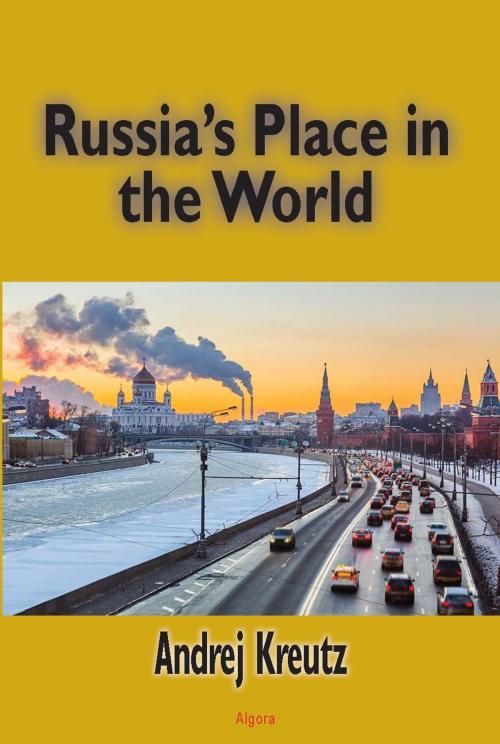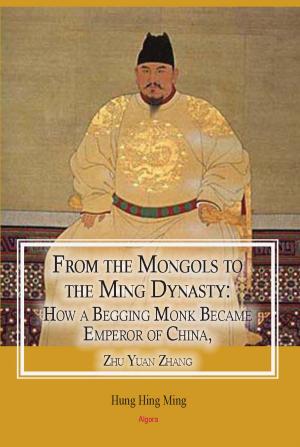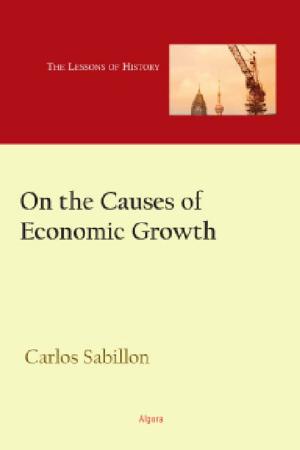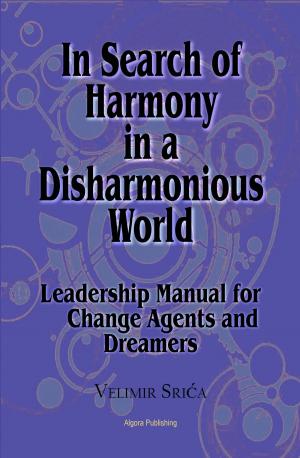| Author: | Andrej Kreutz | ISBN: | 9781628941463 |
| Publisher: | Algora Publishing | Publication: | January 5, 2015 |
| Imprint: | Algora Publishing | Language: | English |
| Author: | Andrej Kreutz |
| ISBN: | 9781628941463 |
| Publisher: | Algora Publishing |
| Publication: | January 5, 2015 |
| Imprint: | Algora Publishing |
| Language: | English |
Prof. Kreutz presents a concise geopolitical and historical background of Russia and the major predicaments that currently hamper its full international integration and acceptance. He outlines the negative and potentially dangerous aspects of the existing situation. In the author's view the Russian Federation, which is a successor state of the Soviet Union and the previous Russian Empire, should not now be treated as a defeated nation on probation. Rather, alongside China, it should be acknowledged as a great independent power with its own political traditions and interests. Only such an approach can secure international peace and cooperation in Europe and Asia, which are needed by all countries of the region and even the world at large.The book's approach is mainly historical; nevertheless it focuses on some of the most important and controversial present day international challenges both in Europe and Asia. Its aims to address academics, journalists and other specialists, but also is written for the general public. Its goal is to provide an alternative and unprejudiced view of the "Russian Problem," starting with the recognition that the struggle for survival has been a major challenge in Russia's past and present - a fact that is often seemingly overlooked by those analysts who misconstrue defensive moves as potential aggression. An expert on Eastern Europe and political history, Prof. Kreutz is neither a Russia-sympathizer nor a Russia-basher, but he presents a neutral account of Russia's place in the world.This book fills a gap left by other recent works including the historical monograph by Marshall J. Poe, The Russian Moment in World History, which provides only the introduction and background to the present situations, and Professor Tsygankov's Russia's Foreign Policy: Change and Continuity in National Identity, which is more about various Russian political theories than on the actual socio-political and geopolitical situation of the country. Mankoff's Russian Foreign Policy. The Return of Great Power Politics and Treisman's The Return: Journey from Gorbachev to Medvyedev are focused on the current political issues and make some interesting points; however, they do not seem to perceive the challenges coming to Russia from the neo-capitalist transformations and US imperial expansion in its neighborhood. Dmitri Trenin did not mention much about them either, in Post-Imperium-Eurasian Story. While presenting a rather bleak picture of present-day Russia, he suggests that Moscow should open itself fully to the capitalist modernization and accept US hegemony. His comparisons of the Soviet Union with the former Western colonial empires are not always convincing. Trenin, a former Soviet Colonel and diplomat is apparently influenced by his present employment with the Carnegie Endowment, but his book is nevertheless informative and makes an interesting contribution to the existing literature on the subject.
Prof. Kreutz presents a concise geopolitical and historical background of Russia and the major predicaments that currently hamper its full international integration and acceptance. He outlines the negative and potentially dangerous aspects of the existing situation. In the author's view the Russian Federation, which is a successor state of the Soviet Union and the previous Russian Empire, should not now be treated as a defeated nation on probation. Rather, alongside China, it should be acknowledged as a great independent power with its own political traditions and interests. Only such an approach can secure international peace and cooperation in Europe and Asia, which are needed by all countries of the region and even the world at large.The book's approach is mainly historical; nevertheless it focuses on some of the most important and controversial present day international challenges both in Europe and Asia. Its aims to address academics, journalists and other specialists, but also is written for the general public. Its goal is to provide an alternative and unprejudiced view of the "Russian Problem," starting with the recognition that the struggle for survival has been a major challenge in Russia's past and present - a fact that is often seemingly overlooked by those analysts who misconstrue defensive moves as potential aggression. An expert on Eastern Europe and political history, Prof. Kreutz is neither a Russia-sympathizer nor a Russia-basher, but he presents a neutral account of Russia's place in the world.This book fills a gap left by other recent works including the historical monograph by Marshall J. Poe, The Russian Moment in World History, which provides only the introduction and background to the present situations, and Professor Tsygankov's Russia's Foreign Policy: Change and Continuity in National Identity, which is more about various Russian political theories than on the actual socio-political and geopolitical situation of the country. Mankoff's Russian Foreign Policy. The Return of Great Power Politics and Treisman's The Return: Journey from Gorbachev to Medvyedev are focused on the current political issues and make some interesting points; however, they do not seem to perceive the challenges coming to Russia from the neo-capitalist transformations and US imperial expansion in its neighborhood. Dmitri Trenin did not mention much about them either, in Post-Imperium-Eurasian Story. While presenting a rather bleak picture of present-day Russia, he suggests that Moscow should open itself fully to the capitalist modernization and accept US hegemony. His comparisons of the Soviet Union with the former Western colonial empires are not always convincing. Trenin, a former Soviet Colonel and diplomat is apparently influenced by his present employment with the Carnegie Endowment, but his book is nevertheless informative and makes an interesting contribution to the existing literature on the subject.















